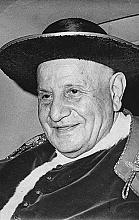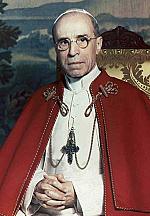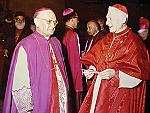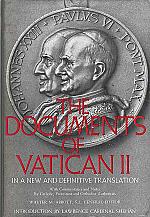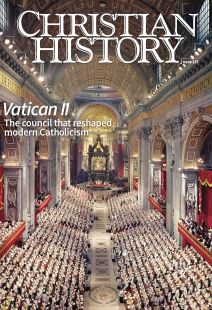Pope versus modernity
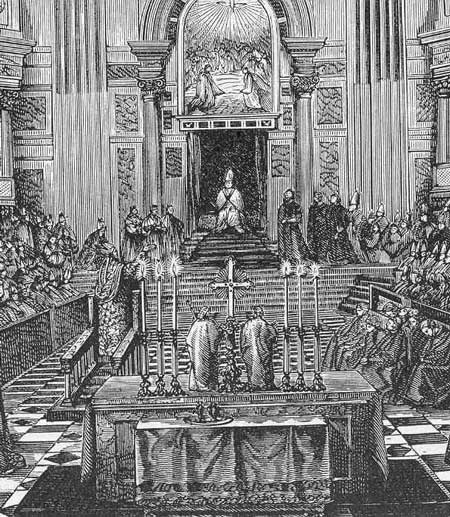
[The first Vatican Council, held in Saint Peter's Basilica during the papacy of Pius IX in 1869. Karl Benzinger [1873 book on Pope Pius IX] / Wikimedia]
Excerpts from Vatican I’s most important documents
Pius, bishop, servant of the servants of God, with the approval of the sacred council, for an everlasting record. Most reverend fathers, is it your pleasure that,
to the praise and glory of the holy and undivided Trinity, Father, Son and holy Spirit,
for the increase and exaltation of the catholic faith and religion,
for the uprooting of current errors,
for the reformation of the clergy and the Christian people, and
for the common peace and concord of all,
the holy ecumenical Vatican council should be opened, and be declared to have been opened?
—Opening of the council, December 8, 1869
Everybody knows that those heresies, condemned by the fathers of Trent, which rejected the divine magisterium of the church and allowed religious questions to be a matter for the judgment of each individual, have gradually collapsed into a multiplicity of sects, either at variance or in agreement with one another; and by this means a good many people have had all faith in Christ destroyed.
Indeed even the holy Bible itself, which they at one time claimed to be the sole source and judge of the Christian faith, is no longer held to be divine, but they begin to assimilate it to the inventions of myth. . . .
The abandonment and rejection of the Christian religion, and the denial of God and his Christ, has plunged the minds of many into the abyss of pantheism, materialism and atheism, and the consequence is that they strive to destroy rational nature itself, to deny any criterion of what is right and just, and to overthrow the very foundations of human society. . . .
—Dei Filius (Dogmatic Constitution on the Catholic Faith)
From the canons on faith and reason:
1. If anyone says that in divine revelation there are contained no true mysteries properly so-called, but that all the dogmas of the faith can be understood and demonstrated by properly trained reason from natural principles: let him be anathema.
2. If anyone says that human studies are to be treated with such a degree of liberty that their assertions may be maintained as true even when they are opposed to divine revelation, and that they may not be forbidden by the church: let him be anathema.
3. If anyone says that it is possible that at some time, given the advancement of knowledge, a sense may be assigned to the dogmas propounded by the church which is different from that which the church has understood and understands: let him be anathema.
—Dei Filius
That which our lord Jesus Christ, the prince of shepherds and great shepherd of the sheep, established in the blessed apostle Peter, for the continual salvation and permanent benefit of the church, must of necessity remain forever, by Christ’s authority, in the church which, founded as it is upon a rock, will stand firm until the end of time. . . .
Furthermore, it follows from that supreme power which the Roman pontiff has in governing the whole church, that he has the right, in the performance of this office of his, to communicate freely with the pastors and flocks of the entire church, so that they may be taught and guided by him in the way of salvation.
And therefore we condemn and reject the opinions of those who hold that this communication of the supreme head with pastors and flocks may be lawfully obstructed; or that it should be dependent on the civil power, which leads them to maintain that what is determined by the apostolic see or by its authority concerning the government of the church, has no force or effect unless it is confirmed by the agreement of the civil authority.
—Pastor Aeternus (Dogmatic Constitution on the Church of Christ)
By Vatican I
[Christian History originally published this article in Christian History Issue #157 in 2025]
Next articles
Meeting the modern world
Vatican II’s call to action for the global Catholic Church
Nadia M. Lahutsky



